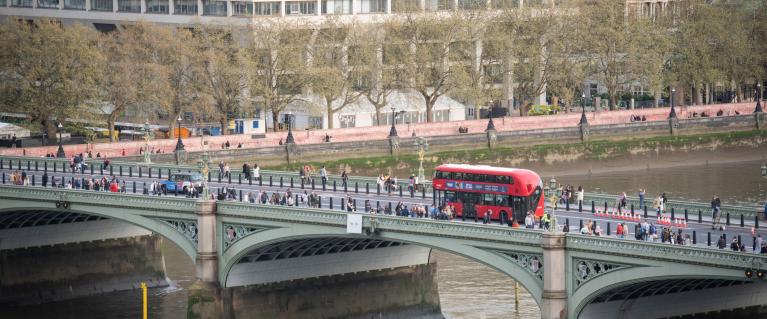
Healthy Places
A commitment to clean air
London’s air pollution is permanently damaging the lungs of young Londoners, harming those with pre-existing conditions, and affecting older people who are more vulnerable to the impacts of poor air quality. It also hits the poorest Londoners hardest, as they are most likely to have the highest levels of exposure.
The fact is that everyone in our city would be healthier if the air we breathed were cleaner.
That’s why the Mayor is ambitious about cleaning up London’s toxic air, tackling climate change and our city’s congestion. He’s made a commitment to help London become a net zero carbon city by 2030, and he’s been working hard to ensure our air quality meets legal and health requirements by 2050.
Over the last eight years, bold actions - such as introducing and expanding the world’s first 24-hour Ultra Low Emission Zone (ULEZ) - have resulted in Londoners experiencing significant reductions in both nitrogen dioxide (NO2) and fine particulate matter (PM2.5) pollution. In fact, his actions since 2016 have helped reduce air pollution London-wide, with concentrations decreasing by 65 per cent in central London, 53 per cent in inner London, and 45 per cent in outer London.
These types of policies have helped to narrow the ‘exposure gap’ between the most and least deprived areas. Here are a few other examples of how he’s working with partners to do this:
- London is currently at the forefront of the electric vehicle revolution and has boosted rapid charge points by more than 7,000. London now has over 19,000 charge points, which is over a third of the UK’s total.
- Improving TfL’s bus fleet, including upgrading the entire TfL bus fleet to meet or exceed ULEZ emissions standards and delivering over 1,300 electric buses to create the largest zero-emission bus fleet in western Europe.
- Introducing a pioneering air quality alerts system to notify Londoners during the worst episodes of air pollution, and expanding these alerts in 2024 to directly notify health professionals.
A commitment to fair wages for all Londoners
Despite being the financial capital of the UK, London has highest rate of poverty of any region in England.
Financial stability enables us to access the basic essentials for life, such as healthy food, a good quality home, heating, transportation, childcare, in some cases education, and so much more. However, many in London can’t afford these things due to low income, and job insecurity. This can lead to reduced quality of life, poor physical and mental health and early death.
Low pay is more common for disabled people, older people, women, young people and migrant workers with insecure immigration status and limited welfare entitlements. So, while work should be a way out of poverty, there are working people in our city right now who still may not be able to afford the basics to keep healthy and make ends meet. This is called in-work poverty – and it’s on the rise.
Right now, many Londoners are experiencing financial strain due to the rising cost of bills and utilities. A review published earlier this year by the UCL Institute of Health Equity reveals that more than half of Londoners are financially struggling or “just about managing,” and this is affecting their health. Too many families are facing difficult choices, for example, between affording childcare, going to work, heating their homes and feeding their families. Yet, none of these are really optional. This will widen inequalities across London.
The Mayor has been working to create an economy that supports Londoners’ wellbeing, through well paid and secure jobs. That’s why he supports the London Living Wage. Currently set at £13.15 an hour, it’s the rate of pay independently calculated to give a worker in London and their family enough to get by. With support from the Mayor, the Making London a Living Wage City campaign has:
-
Launched an Action Plan which has driven Londonwide cross-sector activity
-
Since 2021, there have been over 1500 new Living Wage accredited employers in London, which has met an uplift of almost 50,000 Londoners.
-
This includes 165 employers from Health & Social Care sector become Living Wage accredited, and more importantly resulted in a pay uplift for over 9,000 workers.